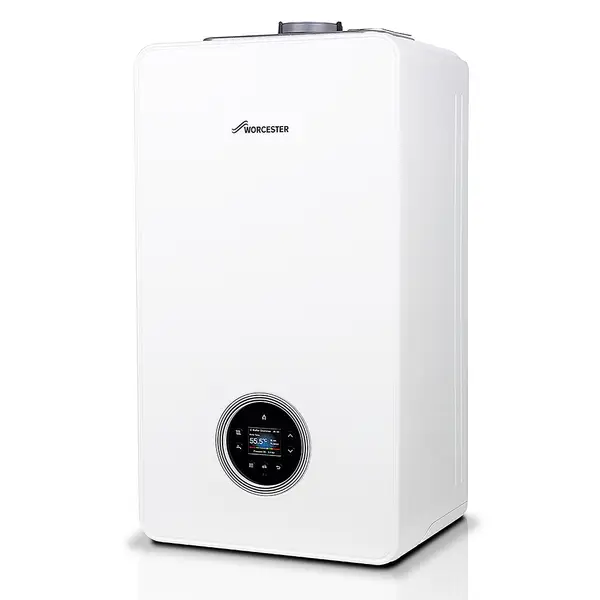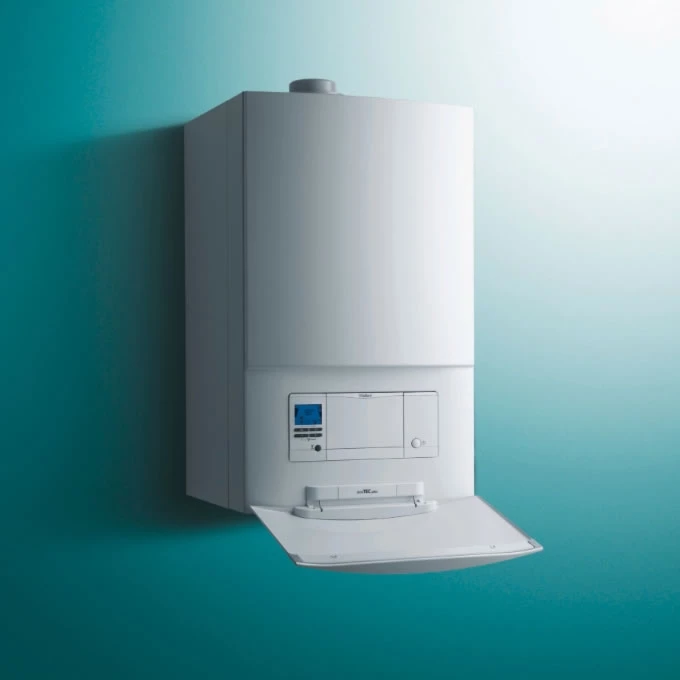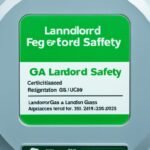Landlord gas safety certificate
Key takeaways:
- Gas safety certificates are legally required and must be renewed annually
- Failure to comply can result in hefty fines and legal consequences
- Regular maintenance and inspections help ensure tenant safety and property protection
- Landlords should keep accurate records and use qualified Gas Safe registered engineers
Are you a landlord wondering about the ins and outs of gas safety certificates? You’re in the right place! This guide will walk you through everything you need to know about gas safety certificate expiry and renewal. We’ll cover why they’re crucial, how to stay compliant, and tips to make the process smooth sailing. Let’s dive in!
1. Understanding gas safety certificates: Why they matter
Gas safety certificates, also known as CP12 certificates, are a legal requirement for UK landlords. They’re not just a piece of paper – they’re your proof that the gas appliances in your rental property are safe and in good working order.
These certificates are vital for several reasons. First and foremost, they ensure the safety of your tenants. Gas leaks and faulty appliances can lead to carbon monoxide poisoning, which can be fatal. By keeping your gas safety certificate up to date, you’re showing that you take your responsibilities seriously.
Moreover, having a valid gas safety certificate protects you legally. If something goes wrong and you can’t prove you’ve had the proper checks done, you could face serious consequences. It’s not worth the risk – staying on top of your gas safety certificate renewals is a small price to pay for peace of mind.

2. When does a gas safety certificate expire?
Gas safety certificates are valid for 12 months from the date of issue. It’s crucial to keep track of this expiry date to ensure you’re always compliant. Here’s a handy table to help you visualise the timeline:
| Certificate Issue Date | Expiry Date | Renewal Due |
|---|---|---|
| 1 January 2024 | 31 December 2024 | Before 1 January 2025 |
| 15 June 2024 | 14 June 2025 | Before 15 June 2025 |
| 30 September 2024 | 29 September 2025 | Before 30 September 2025 |
Remember, you can renew your certificate up to two months before the expiry date without losing any time on your current certificate. This gives you a bit of wiggle room to schedule the inspection at a convenient time.
It’s a good idea to set reminders for yourself about two months before the expiry date. This way, you’ll have plenty of time to arrange for a Gas Safe registered engineer to carry out the inspection and issue a new certificate.

3. The renewal process: Step by step
Renewing your gas safety certificate doesn’t have to be a headache. Here’s a simple step-by-step guide to help you through the process:
- Schedule an inspection: Contact a Gas Safe registered engineer to book an appointment. Make sure to do this well in advance of your certificate’s expiry date.
- Prepare for the inspection: Ensure all gas appliances are accessible. If you have tenants, inform them about the upcoming inspection and ask them to provide access.
- The inspection: The engineer will check all gas appliances, flues, and pipework. They’ll test for gas tightness, check ventilation, and ensure all safety devices are working correctly.
- Receive your new certificate: If everything passes inspection, you’ll be issued a new gas safety certificate valid for another 12 months.
- Provide a copy to your tenants: You must give a copy of the new certificate to your tenants within 28 days of the inspection.
Remember, if any issues are found during the inspection, they must be addressed before a new certificate can be issued. It’s better to catch and fix problems early rather than waiting for them to become serious (and potentially dangerous) issues.
4. What happens if you let your certificate expire?
Letting your gas safety certificate expire is a serious matter. It’s not just a case of being a bit late with some paperwork – there are real consequences. Here’s what you could be facing:
First off, you’ll be breaking the law. The Gas Safety (Installation and Use) Regulations 1998 require landlords to have a valid gas safety certificate at all times. Failure to comply can result in fines of up to £6,000 per appliance and/or six months’ imprisonment.
Secondly, your insurance could be invalidated. Many landlord insurance policies require you to comply with all relevant laws and regulations. If you don’t have a valid gas safety certificate, you might find yourself uninsured if something goes wrong.
Lastly, you could face difficulties if you need to evict a tenant. Without a valid gas safety certificate, you may not be able to serve a Section 21 notice to regain possession of your property. It’s simply not worth the risk – keep your certificate up to date!
5. Tips for staying on top of renewals
Staying organised is key when it comes to gas safety certificate renewals. Here are some tips to help you stay on track:
- Use a digital calendar: Set up reminders for two months before your certificate expires. This gives you plenty of time to arrange an inspection.
- Keep good records: Store your certificates safely and keep a log of inspection dates. This can be as simple as a spreadsheet or a dedicated property management app.
- Build a relationship with a reliable Gas Safe engineer: Having a go-to professional can make the renewal process much smoother.
- Consider early renewal: If you have multiple properties, consider aligning their renewal dates by renewing some certificates early. This can make it easier to manage in the long run.
- Educate your tenants: Make sure they understand the importance of gas safety and know to report any concerns promptly.
By following these tips, you’ll find that keeping on top of your gas safety obligations becomes second nature.
6. The role of Gas Safe registered engineers
When it comes to gas safety certificates, not just any handyman will do. You need a Gas Safe registered engineer. But what does that mean, and why is it so important?
Gas Safe Register is the official list of gas engineers who are legally allowed to work on gas appliances. These professionals have been checked to make sure they’re competent and qualified. When you use a Gas Safe registered engineer, you can be confident that the job will be done safely and to the required standard.
To check if an engineer is Gas Safe registered, you can ask to see their ID card. Every registered engineer carries one. You can also check online at the Gas Safe Register website. It’s always better to be safe than sorry when it comes to gas work!
7. Beyond the certificate: Ongoing gas safety
While the annual gas safety check is crucial, it’s not the only thing you should be thinking about when it comes to gas safety in your rental property. Here are some additional steps you can take:
- Install carbon monoxide detectors: These are now legally required in rooms with solid fuel burning appliances, but it’s a good idea to install them wherever there are gas appliances too.
- Educate your tenants: Make sure they know how to spot signs of a gas leak or carbon monoxide poisoning. Provide them with emergency contact numbers.
- Respond promptly to concerns: If a tenant reports a gas smell or a problem with a gas appliance, treat it as an emergency and get it checked out immediately.
Remember, gas safety is an ongoing responsibility. By taking a proactive approach, you’re not just complying with the law – you’re potentially saving lives.
8. The future of gas safety certificates
As we look to the future, it’s likely that the process of obtaining and managing gas safety certificates will continue to evolve. With the push towards digitisation, we may see more widespread adoption of digital certificates and online verification systems.
There’s also an increasing focus on energy efficiency and reducing carbon emissions. This could lead to changes in the regulations around gas appliances in rental properties. As a landlord, it’s important to stay informed about these developments and be prepared to adapt.
One thing that’s unlikely to change is the importance of gas safety itself. As long as we’re using gas in our homes, regular checks and maintenance will remain crucial. By staying on top of your gas safety obligations now, you’re setting yourself up for success in the future.
Key takeaways
- Gas safety certificates are a legal requirement for landlords and must be renewed annually.
- Letting your certificate expire can result in hefty fines, legal issues, and potentially put your tenants at risk.
- Stay organised by setting reminders and keeping good records.
- Always use a Gas Safe registered engineer for inspections and any gas-related work.
- Take a proactive approach to gas safety beyond just the annual check.
Frequently Asked Questions
- Q: How often do I need to renew my gas safety certificate?
A: Gas safety certificates need to be renewed annually, every 12 months. - Q: Can I do the gas safety check myself?
A: No, gas safety checks must be carried out by a Gas Safe registered engineer. - Q: What happens if I can’t access the property for the inspection?
A: You must make reasonable efforts to gain access. Keep records of your attempts in case you need to prove you’ve tried to comply. - Q: Do I need to give my tenants a copy of the gas safety certificate?
A: Yes, you must provide a copy to your tenants within 28 days of the inspection. - Q: What appliances are covered by the gas safety check?
A: The check covers all gas appliances, flues, and pipework that you provide for your tenants.
Remember, when it comes to gas safety, it’s always better to be safe than sorry. Stay on top of your gas safety certificate renewals, and you’ll be protecting your tenants, your property, and yourself.




